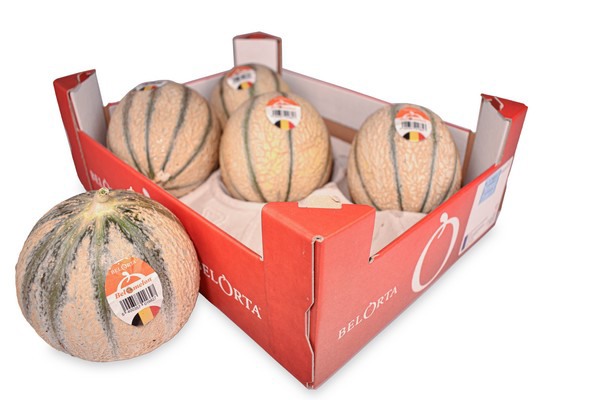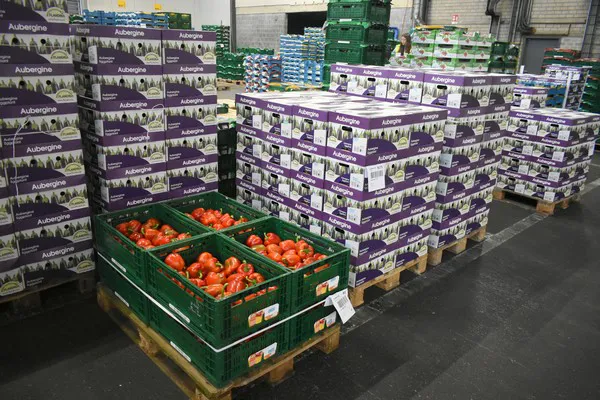"The Belgian melon supply is growing annually," says BelOrta's Glenn Philips. The cooperative introduced this melon about three years ago under the name BelOmelon. "More and more growers are picking it up. The acreage expands every year, and with the recent beautiful weather, you get beautiful, sweet melons with a high Brix value. These melons are now catching on with the general public."

Import competition
Consumers and traders have, however, had to get used to melons of Belgian origin. "People often have a certain image of Belgian melons, or tomatoes; that they taste different than those from southern Europe. That's, of course, nonsense because our sun is the same as the one in Spanish skies."
"So, Belgian products certainly aren't inferior to Spanish or French products. And we can compete well with the imported fruit in the local market. Another significant plus is that we can harvest RTE. The time between harvesting and reaching the shelf is much shorter than with imports," Glenn explains.
Several growers now cultivate these Charentais melons. "Most are strawberry farmers, who add melons. Both fruit's growing system is similar, so they fit perfectly." There is, thus, currently, sufficient supply to meet the Belgian market's demand. "We won't plant too much more because demand has to meet supply."
"It's no use if the local market becomes saturated. We won't export either, because there's enough of this product overseas. So if there's a surplus, there'll be leftover product. However, for people who prefer local produce, there's now a melon that is, at least, as tasty as the overseas melons," Philips says.

Heritage cucumber
This melon's success results from the cooperative's plan to keep bringing new products to market. "Naturally, we only do this with products in which we see potential. By partnering with test farms, we see what's possible in Belgium. We then explore whether there's interest from growers and if consumers will take to the product. We start with a smaller area, and if the crop catches on, that keeps expanding."
Via this route, BelOrta recently also introduced a heritage cucumber under the name, Kombro. "This is a slightly firmer cucumber, ideal for use in, say, wok dishes. You don't commonly use regular cucumbers for that," Glenn continues. "This heritage cucumber is delicious to eat raw, too, with a true, distinctive cucumber flavor. This heritage cucumber will be auctioned for the first time this year. We'll see if it catches on, but that's a matter of conjecture for now."

Beef tomatoes struggling
Regarding fruit-vegetables, it remains a challenging season, especially for growers. "There's a good supply, but the hot weather has caused problems for several products. Beef tomatoes are going to have it hard. Again, because of the heat, we expect production to decrease gradually in the coming weeks. Also, due to cultivation costs, selling prices should be higher for the growers. This uncertainty is making growers unsure of what to do in the fall. They have to decide what to plant now - not an easy decision for everyone," Glenn concludes.
For more information: BelOrta
BelOrta
120 Mechelsesteenweg
2860, Sint-Katelijne-Waver, Belgium
Tel: +32 (0) 155 51 111
Email: info@belorta.be
Website: www.belorta.be
